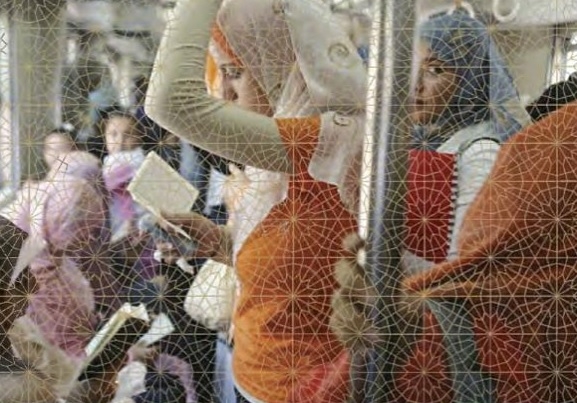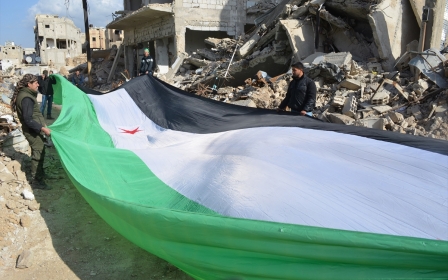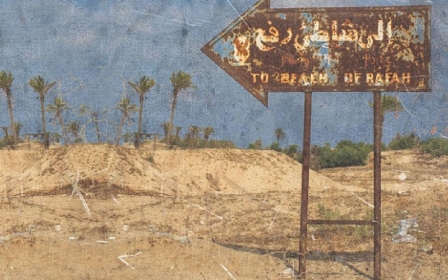BOOK REVIEW: Excellent Daughters

Katherine Zoepf’s Excellent Daughters is the culmination of her reportage from the Middle East and North Africa for more than a decade. As a freelancer, she wrote for publications like The New York Times and The Wall Street Journal, and her reporting covers Beirut, Abu Dhabi, Cairo, Riyadh, and Damascus.
Engaged in the lives of women from a variety of backgrounds, she interviews graduate students, professors, saleswomen, and flight attendants; activists who agitated against the Mubarak regime in Egypt and for driving rights in Saudi Arabia; women who have never left their villages and women who are part of the petrodollar diaspora in the Gulf, providing for their families “back home” in the rest of the Arab world; public figures and publicised cases.
She begins her book in a walled garden in Riyadh, Saudi Arabia, among newly graduated young women, whose naivete and immaturity Zoepf is keen to emphasise - fixations on Disney World, Mickey Mouse jewelry, and girlish mannerisms that involve a lot of “cuddling and hand holding” and “rapturous squeals”. The picture is one of sheltered and infantilised womanhood wrought through a walled-garden allegory that comes off as too belaboured. But a few pages later, Zoepf does something refreshing - she reviews her hasty notes: “I learned, soon after I began working in the Arab world, that it was a mistake to read too much into girlish manners and elaborate demonstrations of modesty; both may be usefully employed to mask vaulting ambition.”
Her critical glance back at her prologue from the walled garden in Saudi Arabia is part of a rhetorical device that enables Zoepf to distinguish herself from those who came before her - for example, Geraldine Brooks (Nine Parts of Desire: The Hidden World of Islamic Women) and Jan Goodwin (Price of Honor: Muslim Women Lift the Veil of Silence on the Islamic World), etc - western female authors who since the last century have implemented well-placed cliches and buzzwords associated with women in the Muslim world. These include lifting the veil and exposing harem secrets, to sensationalise the quotidian experience of having coffee and chatting at a garden party, for example, into a niched professional industry. And all of this is done without ever grasping or attempting to understand codes of behaviour particular to the interviewees’ cultures. But, Zoepf’s self-editorialization suggests a learning curve, from an outsider unaware of behaviour codes to an insider who inevitably displays empathy.
Although Zoepf covers some public figures and publicised cases, like the driving rights activists in Riyadh, the Arab Spring female protestors who were subject to “virginity tests” in Cairo, and an honour-killing victim in Damascus, her focus is on the daily experiences of women outside the spotlight: “A few of the women whose stories appear here are activists but, because most are not, some of these seized opportunities and acts of courage may appear small.” Zoepf also focuses on the quotidian, the day-to-day, what she herself calls “small gestures”: “the world changes because of wars and terrorist attacks, but it also changes because a daughter makes slightly different decisions from the ones a mother made.” To Zoepf’s credit, she also covers the perspective of women who prefer and find value in strict traditions in the face of burgeoning women’s rights and does so without belaboured moralising.
Stay informed with MEE's newsletters
Sign up to get the latest alerts, insights and analysis, starting with Turkey Unpacked
So then we are immersed into the world of the showfa in Saudi Arabia (the “viewing” of the engaged bride by her fiance and in-laws), women’s religious gatherings in Syria (lead by the secretive and prominent group the Qubaisiate), and cosmetic surgery in Lebanon (also involving hymen reconstruction due to a myopic obsession with women’s chastity).
Zoepf grounds her narratives in specific cities. So when she writes, “life in this women-only world must have its own consolations,” she is specifically referring to Saudi Arabia, rather than the entire Middle East. At other times, specificity is sacrificed. When she highlights that what is considered a detriment for a female journalist in the Middle East - presumably lack of access to male spaces - she leverages to access women’s spaces where discussions of women’s rights that aren’t necessarily the stuff of headlines are unpacked with honesty and forthrightness. While it’s probably true, like anywhere, that forthright discussions about feminism and women’s rights would often take place “behind … closed doors,” where earning trust is key to establishing “a great deal of mutual support and protection” among women, she would also have likely gained access to other spaces where both men and women gather, in various countries of the Middle East outside Saudi Arabia, where gender segregation is strict and enforced. At certain points, she risks simplifying her seemingly genuine attempts at nuance by conflating codes of behaviour that apply to one country or town or national area into one narrative of a region, which spans two continents.
For some, Excellent Daughters might be an eye-opening account of women from various backgrounds in the Middle East. For others, it might signal a turn from the genre of fetishistic exposés that objectify Muslim women by way of presumably criticising their objectification (associating women with what they wear, for example). After all, Zoepf’s deft meta-commentaries on cliched and stereotypical discourses on women in the Middle East, including hyper-focus on the hijab, is a promising signal that this genre is turning over a new leaf.
"Excellent Daughters: The Secret Lives of Young Women Who Are Transforming the World" by Katherine Zoepf Penguin Random House 2016.
Middle East Eye delivers independent and unrivalled coverage and analysis of the Middle East, North Africa and beyond. To learn more about republishing this content and the associated fees, please fill out this form. More about MEE can be found here.




